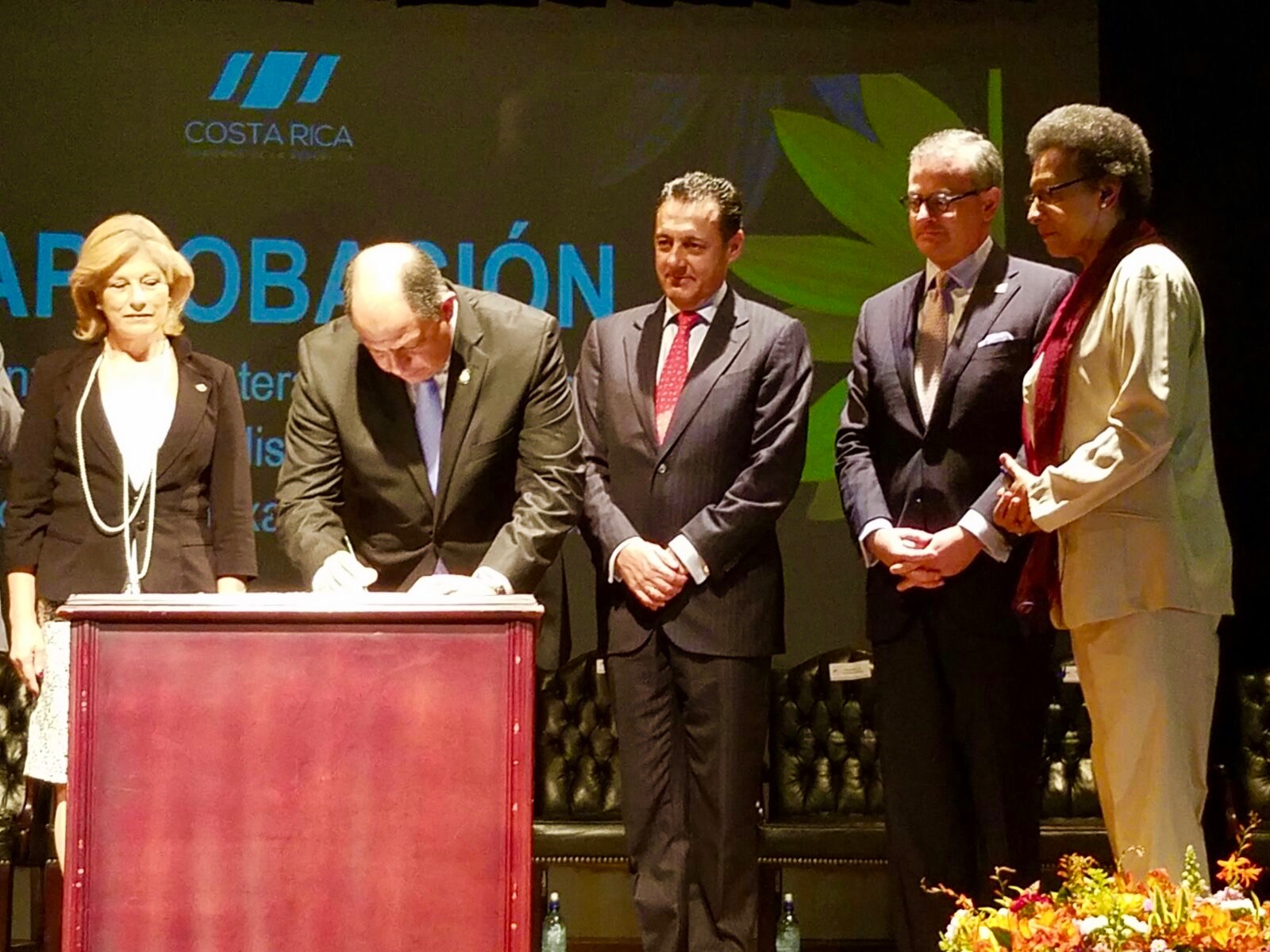Costa Rica Becomes the First Country in the Region to Ratify the Inter-American Convention against Racism, Racial Discrimination, and Related Forms of Intolerance
San Jose, Costa Rica – On August 5, 2016, Costa Rican President Luis Guillermo Solis signed Law 9558, by which Costa Rica becomes the first State in the region to […]

San Jose, Costa Rica – On August 5, 2016, Costa Rican President Luis Guillermo Solis signed Law 9558, by which Costa Rica becomes the first State in the region to ratify the Inter-American Convention against Racism, Racial Discrimination, and Related Forms of Intolerance – a Convention approved by the General Assembly of the Organization of American States (OAS) in Antigua, Guatemala in 2013.
“As a country, by ratifying the Convention we have taken an important step in guaranteeing the principles of equality and non-discrimination that are safeguarded in our Constitution. The Inter-American Convention becomes, through our own will, a supra-constitutional instrument of obligatory compliance,” President Solis said upon signing the document during an official event.
Commissioner Margarette May Macaulay of Jamaica, the Special Rapporteur on the Rights of Persons of African Descent and Against Racial Discrimination of the Inter-American Commission on Human Rights, attended the formal signing event, supported by the Institute on Race, Equality and Human Rights.
Afro-Costa Rican congresswoman Epsy Campbell said that by becoming the first country in the region to ratify the Convention, “Costa Rica was making history.” Congresswoman Campbell said she was proud that it was the current government that ratified the Convention, which will improve the lives of the Afro-Costa Rican and indigenous populations.
“This ratification is very important, as it realizes the dream of those of us who participated in the conference in Santiago in 2000 (in preparation for the III World Conference in Durban, South Africa) where, in the conference’s plan of action, countries of the region asked the OAS to consider the creation of a regional instrument to combat racial discrimination,” said Carlos Quesada, Executive Director of the Institute on Race, Equality and Human Rights. The Institute has worked in support of the Convention’s ratification since its approval in the Americas.
The Convention includes a series of innovative elements, from the definition of racism to the obligation of States to promote affirmative action measures to improve the condition of Afro-descendant and indigenous populations in the Americas. Additionally, it will create an Inter-American Committee against racism, whose objective will be to investigate and monitor the situation of racism in the region.
On behalf of the Costa Rican State, President Solis apologized to the Afro-descendant, indigenous, Jewish, Chinese, Lebanese and Palestinian communities living in the country, “for the forms of discrimination to which they’ve been subjected throughout history.”
With the signing of the Law, the government of Costa Rica must now send a communique to the Department of International Law of the OAS in order to deposit the ratification instrument. It’s important to remember that the Convention will become valid when a second ratification instrument is deposited.

